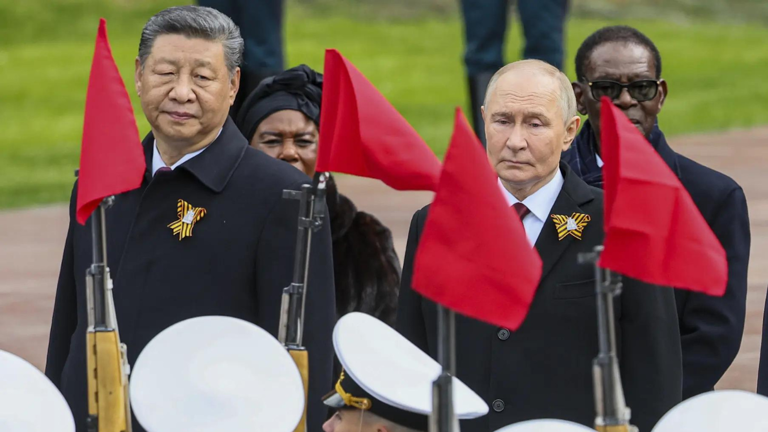Leaked Russian Intelligence Shows Kremlin Fears China’s Espionage
In a world where public diplomacy often hides harsh realities, a leaked FSB document has shattered the illusion of seamless unity between Moscow and Beijing. While President Vladimir Putin publicly describes the Russia–China partnership as entering a “golden era,” leaked Russian intelligence shows the Kremlin fears China more than it admits. The Federal Security Service (FSB) secretly labels China not as a trusted ally but as a persistent espionage threat, a territorial opportunist, and a soft-power rival, especially in Central Asia and the Arctic.
This revelation underscores the fragility of the Russia–China alliance, exposing behind-the-scenes efforts to contain Chinese infiltration while maintaining the appearance of cooperation, especially in the wake of Western sanctions and global isolation.
China’s Espionage & Soft-Power: Why Russia is Alarmed
The leaked FSB memo accuses China of aggressively expanding its spy networks across Russia. FSB labels China the enemy despite public alliance, alleging that Chinese agents are recruiting Russian scientists, journalists, and military officials to steal sensitive military technology. Particularly worrying is how Chinese operatives track Russian military operations in Ukraine, allegedly to learn Western warfare tactics—not to help Moscow, but to enhance China’s own military might.
The memo highlights China’s growing presence in Central Asia and the Arctic, using companies, universities, and even historical research to gain foothold in Russia’s strategic zones. FSB warns of Beijing’s Arctic research as cover for influence, while also expressing concern over Chinese academics publishing maps renaming Vladivostok—a veiled push for territorial claims under the guise of historical revisionism.
Meanwhile, Russia’s counterintelligence efforts, including the Entente-4 program, are actively working to block Chinese espionage. Measures include monitoring WeChat users in Russia, hacking phones, and warning professionals working with China about Beijing’s true intent. The Russian strategy to feed disinformation to Chinese agents is also in place—to mislead Beijing while preserving the fragile balance.
The Kremlin’s Balancing Act: Silent War Under Public Smiles
Despite its rising suspicions, the Kremlin cannot afford a direct confrontation with China. Putin’s strategic partnership with China is crucial in the post-Ukraine war landscape, where Western sanctions have pushed Russia into economic and political dependence on Beijing. But the FSB’s harsh China assessment paints a far more complicated reality—one where Russia is relying on China while fearing espionage.
Russia is caught between pragmatism and paranoia. The FSB recommends caution, noting that alienating China could isolate Russia further. This is why the Kremlin is conducting covert counterespionage operations while publicly maintaining diplomatic warmth. The soft power clash in Central Asia between Moscow and Beijing is already intensifying, and Beijing’s ideological and territorial assertiveness is raising fears in the Kremlin corridors.
This leak not only exposes cracks in the Russia–China alliance but also raises questions for global powers like the U.S.—who now must navigate a geopolitical map where strategic friendships may conceal growing distrust.
The leaked FSB document is a wake-up call. It unmasks the espionage pressure, territorial tension, and soft-power rivalry lurking behind Putin’s rhetoric. While Russia continues to rely on China economically, Russian intelligence now views China as a threat—not an ally. For the rest of the world, this leak is more than gossip—it’s a glimpse into the silent cold war brewing between two authoritarian giants beneath a shared anti-Western façade.





















